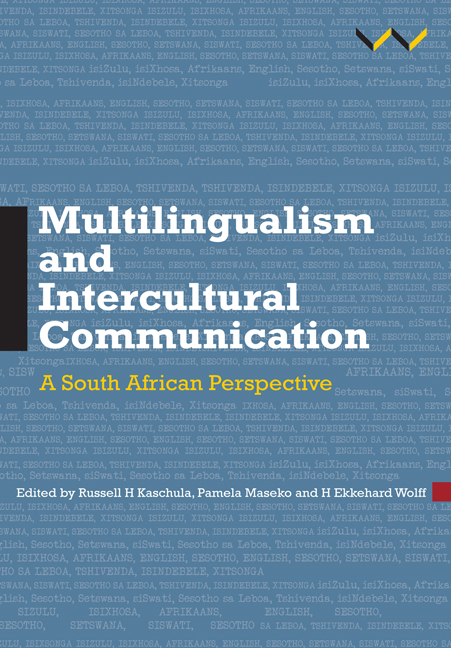Book contents
- Frontmatter
- Contents
- Tables and figures
- Preface
- Abbreviations and acronyms
- Central terms and concepts
- Introduction
- Prologue: The essentialist paradox in intellectual discourse on African languages
- Part One African language empowerment: concept formation and intellectualisation
- Part Two Language planning, terminology development and dictionaries
- Part Three Language in education
- 7 Managing multilingualism in education: policies and practices
- 8 University multilingualism: modelling rationales for language policies
- 9 Language development and multilingualism at the Cape Peninsula University of Technology
- 10 Teacher development: promoting a biliteracy approach to epistemic access
- Part Four Language in the professions: law, media, science and language technology
- Part Five Language, culture and intercultural communication
- Acknowledgements
- Contributors
- Index
8 - University multilingualism: modelling rationales for language policies
from Part Three - Language in education
Published online by Cambridge University Press: 23 March 2018
- Frontmatter
- Contents
- Tables and figures
- Preface
- Abbreviations and acronyms
- Central terms and concepts
- Introduction
- Prologue: The essentialist paradox in intellectual discourse on African languages
- Part One African language empowerment: concept formation and intellectualisation
- Part Two Language planning, terminology development and dictionaries
- Part Three Language in education
- 7 Managing multilingualism in education: policies and practices
- 8 University multilingualism: modelling rationales for language policies
- 9 Language development and multilingualism at the Cape Peninsula University of Technology
- 10 Teacher development: promoting a biliteracy approach to epistemic access
- Part Four Language in the professions: law, media, science and language technology
- Part Five Language, culture and intercultural communication
- Acknowledgements
- Contributors
- Index
Summary
In South Africa and increasingly in Europe, universities are becoming a site for discussions of language policy and multilingualism. This is evident in:
• book-length publications (in South Africa, for example, Van der Walt 2013; in Spain, for example, Fortanet-Gómez 2013);
• special issues of journals (for example, in South Africa, volume 24, issue 4, 2013, of Linguistics in Education and volume 38, issue 3, 2010, of The Language Learning Journal; in Europe, volume 35, issue 4, 2014, of Journal of Multilingualism and Multiculturalism);
• reports of special advocacy groups (for example, in South Africa, the 2010 position statement of the Special Interest Group on Multilingualism in higher education [SIGoM 2010]; in Europe, the European Language Council [2013] report on higher education language policy, or Tudor [2004] on benchmarks for a higher education language policy);
• work by study panels (for example, in South Africa, the Department of Higher Education and Training [2015] report which documents the recommendations of the Ministerial Advisory Panel on African Languages in Higher Education; in Europe, Chambers’ [2003] pilot survey on language policy in European higher education); and
• policy frameworks (for example, in South Africa, the Ministry of Education's language policy for higher education [MoE 2002]; in Germany, the German Rectors’ Conference [HRK] document on language policy at German universities [HRK 2011]).
The motivations for this interest are diverse. In South Africa, an important thrust of recent research on the subject has to do with the effectiveness or otherwise of university language policies in supporting the overall national agenda of transformation post-1994 (Du Plessis 2006; Ndimande-Hlongwa et al. 2010; Webb 2012; Madiba 2013; Makalela and McCabe 2013; Stroud and Kerfoot 2013). In Europe, contemporary engagement with language policy formulation has been motivated not so much by the need to deregulate and deracialise access to higher education as by concerns such as the need to manage internationalisation (Veronesi and Nickenig 2009; Cabau 2011; HRK 2011); by geography, as in universities recently founded in linguistic borderlands (Nickenig 2009) and by the need to build a European higher education area and brand, both of which are seen as necessarily multilingual (Tudor 2004).
- Type
- Chapter
- Information
- Multilingualism and Intercultural CommunicationA South African perspective, pp. 157 - 181Publisher: Wits University PressPrint publication year: 2017



